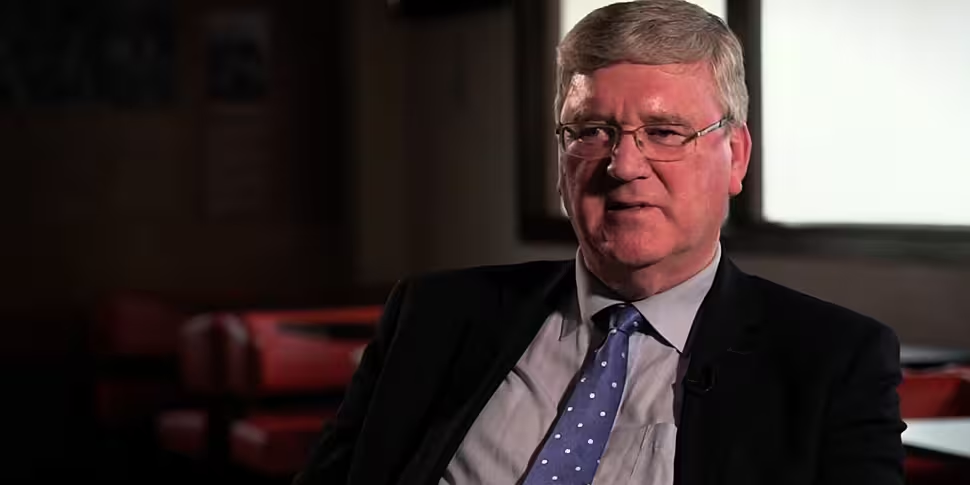Supermac's owner Pat McDonagh has said the country is "on a very slippery road" when it comes to personal injury claims.
The businessman was speaking after a seven-year legal battle over an incident that happened at his Eyre Square branch in Galway was thrown out after the plaintiff did not show in court.
He told The Pat Kenny Show why he decided to fight the case.
"It was a case where the lady claimed she slipped and fell going into the premises," he said.
"It was right in front of one of our staff members, and this case then was proceeded to go through the courts and went on and on and on".
 Supermacs logo is seen in a file photo. Picture by: Laura Hutton/RollingNews.ie
Supermacs logo is seen in a file photo. Picture by: Laura Hutton/RollingNews.ieHe said the insurance company was on Supermac's side in the case.
"Accidents do occur and genuine accidents occur and that's fine, there's no issue with that," he said.
"[The insurance company] were on our side in this particular case, but in a lot of cases, the insurance companies advise you to settle because of the costs involved in bringing it to court.
"If 92% of cases are settled before the court, then it doesn't give a great reflection on how much justice you can get in the court".
'Reluctance' to change
Mr McDonagh said changes in the insurance industry are not happening fast enough.
"It's an industry that's been operating, it has been for the last 35 years... it hasn't changed.
"I think the changes are right, in fairness, in the legislation, and giving PIAB more powers, I think that's going to help somewhat.
"But I think there's a certain reluctance to do that out there, and cases that will still go to court will pay the piper".
'Why would anyone have respect for the law?'
He said some judges are more aware than others.
"There are certain judges who are very in tune to what's happening out there", he said.
"There are others who don't seem to have the same interest in it.
"That's the situation you're dealing with and I think we're on a very dangerous road".
He warned that if we can’t depend on the courts of justice, “we’re on a very slippery road”.
"Why would anyone have any respect for the law if that's the case?
"I do feel... law and order is going to be issue inside the next few years for various reasons.
"Not because of necessarily insurance, but it could be a part of it as well".
'Premiums up 35%'
Mr McDonagh said claims have to be reported within two months, which is being ignored by the courts.
"I've seen cases come in six months, a year later down the line," he said.
"You're supposed to not hold on to your CCTV - a month I think is the limit - so therefore a lot of your evidence is gone by the time you get the claim.
"Depending on the situation, it can run on and on - because then there has to be an investigation by the engineers and there has to be witnesses, etc."
Personal injury
People making personal injury claims have ‘two years less one day’ from the ‘date of knowledge’ to make their claim.
The date of knowledge is either:
- The date they were injured
- The date they realised the injury was significant
- The date they realised the injury was caused by another party’s negligence
- The date the identified who was allegedly at fault
Under the legislation, however, the injured party must send a ‘Letter of Claim’ to the party that was allegedly at fault within two months of the date of knowledge, “or as soon as practicable thereafter”.
Failure to do this does not prevent the injured party from making a claim – but it does mean that the court can decide not to award costs to them.

Mr McDonagh said many minor injuries are exaggerated to a point where "you nearly wonder how they're able to walk or whatever it is at all".
"In most cases, insurance companies take it over and a lot of people wouldn't hear from it until it's settled,” he said.
"They give you a loan to pay off the claim, but then jack up your premium for the following five/10 years.
"That's why a lot of insurance premia are going up at the moment.
"In our case, we've seen premia going up from anything from 20 to 35%.
"This is a club and it's an industry that's operating, and all within that club - including insurance companies - are making money out of it.
"The fall guy is the insured party, they're the ones that pay the piper at the end of the day," he added.
Listen back to the full interview below:









